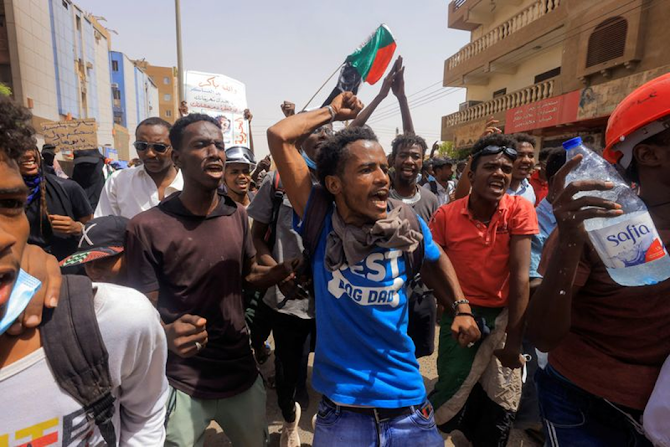Security forces used tear gas and thrown
grenades against demonstrators against Sudan's military leaders, as diplomatic
efforts to mediate a political solution to the country's post-coup crisis
stalled.
Thousands marched towards Khartoum's
presidential palace on Thursday, despite scorching temperatures and a
significant security deployment, in the first major rally after Ramadan and the
largest turnout in several weeks.
"Kill us, we're not frightened," and
"The people's government is civilian" were chanted by protesters in
the capital — and others recorded in other places on social media.
Sudan has been in political turmoil since the
military overthrew previous President Omar Al Bashir in April 2019 following
months of major protests.
After numerous protests, the army decided to
share control with civilian parties, but in October 2021, the army took control
again in a coup.
Since then, civilian groups, including protest
organizing committees, have refused to negotiate with the military. To try to
develop a political foundation, military officials have turned to forces close
to Bashir.
Talks between the UN and the African Union,
which were supposed to start this week, have stalled, drawing condemnation from
the military & civil society.
On Wednesday, Khartoum resistance committees
adopted a charter outlining their plan to abolish military rule and encouraging
political parties to participate.
"We are more confident now that the
charter has been signed," Ahmed Fathalrahman, 38, said.
According to Reuters, there was a strong
deployment of army, police, and the Central Reserve Forces — which the US
sanctioned in March — along the demonstration route and in residential
neighborhoods at the start of the event.
According to medics, at least 95 people have
died and hundreds have been injured in rallies since the coup. Hundreds of
political prisoners are still being held, according to lawyers.
Military authorities have stated that the
killings would be evaluated, that those detained will face criminal charges,
and that the coup was necessary to resolve political infighting.

Comments
Post a Comment